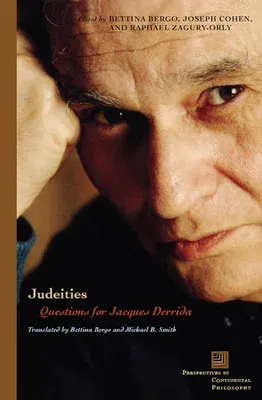Judeities: Questions for Jacques DerridaPaperback, 15 June 2007

Qty
1
Turbo
Ships in 2 - 3 days
In Stock
Free Delivery
Cash on Delivery
15 Days
Free Returns
Secure Checkout

Part of Series
Perspectives in Continental Philosophy
Part of Series
Perspectives in Continental Philosophy (Paperback)
Print Length
224 pages
Language
English
Publisher
Fordham University Press
Date Published
15 Jun 2007
ISBN-10
0823226425
ISBN-13
9780823226429
Description
Product Details
Book Format:
Paperback
Country of Origin:
US
Date Published:
15 June 2007
Dimensions:
22.83 x
16.03 x
1.85 cm
ISBN-10:
0823226425
ISBN-13:
9780823226429
Language:
English
Location:
New York
Pages:
224
Publisher:
Weight:
408.23 gm